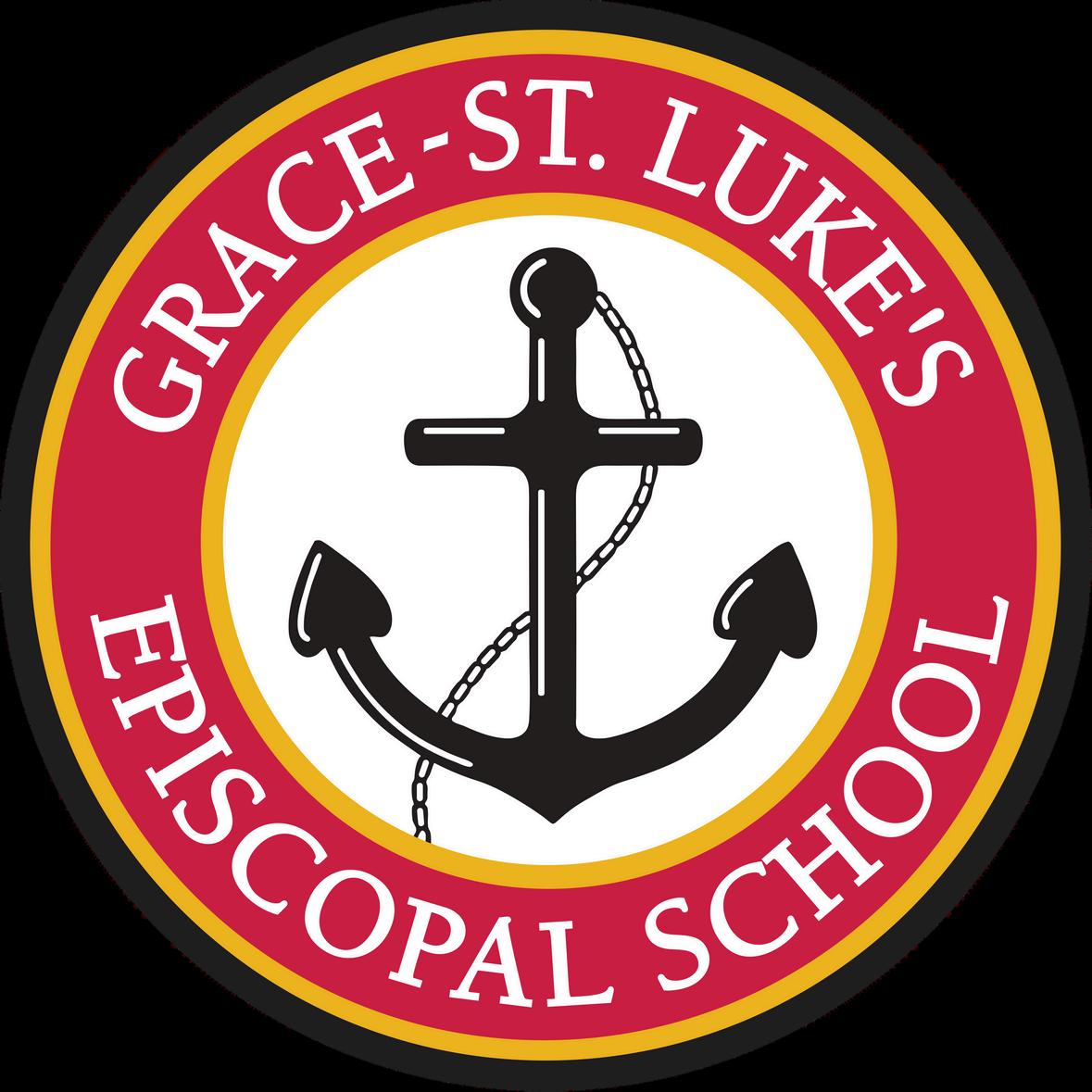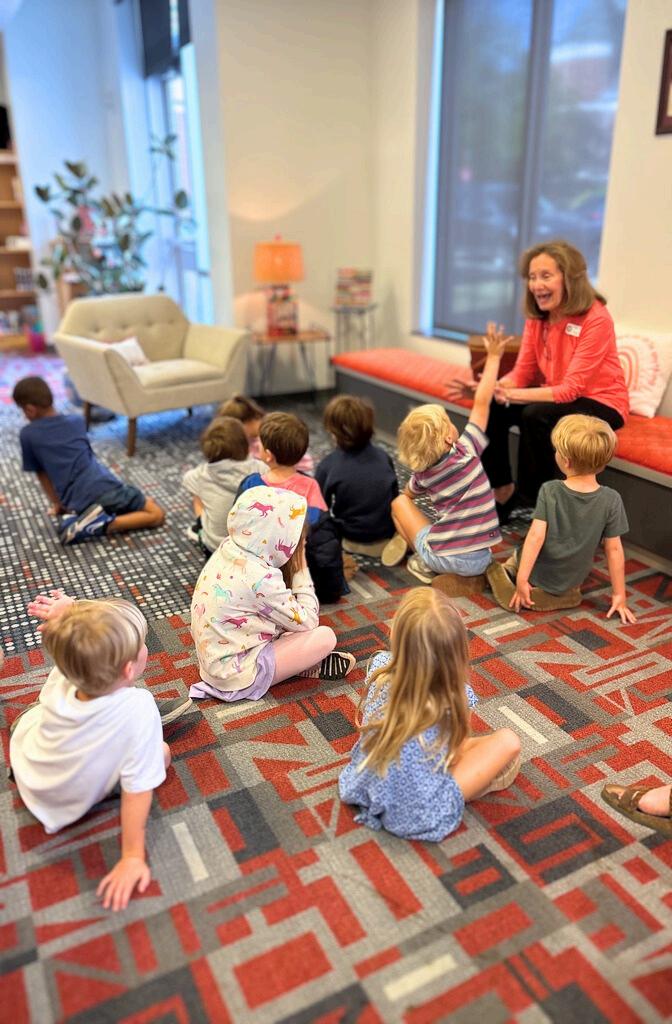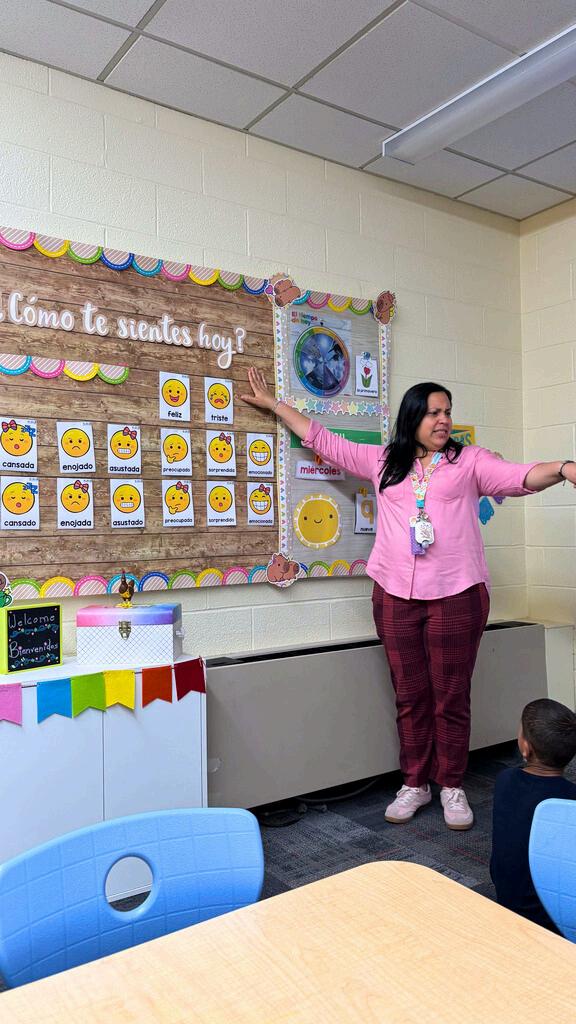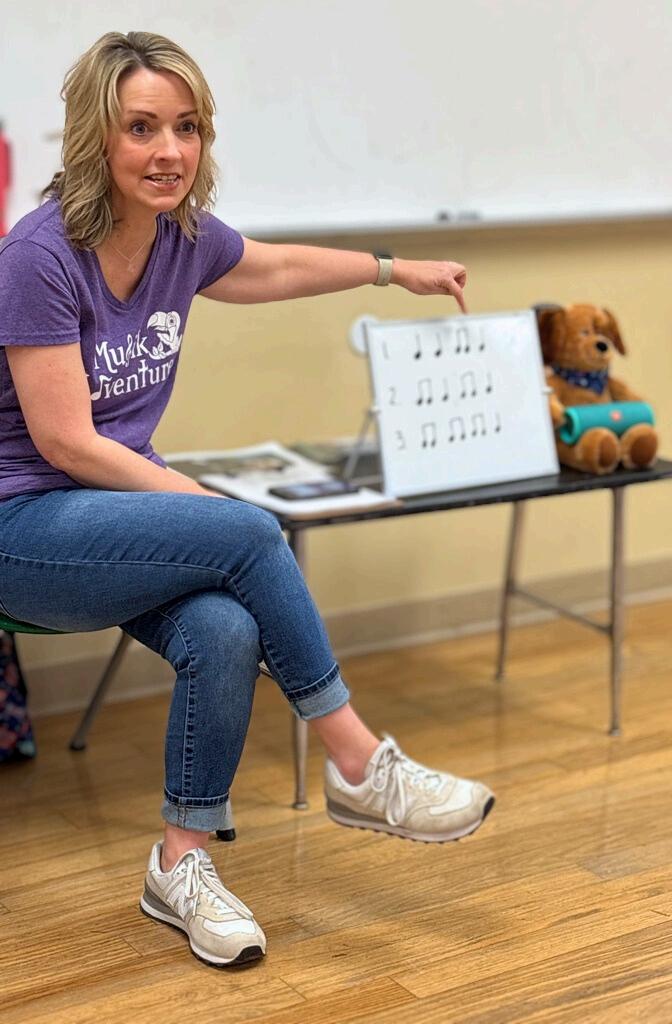JUNIOR KINDERGARTEN PROGRAM OF STUDY
2025-26 School Year



Play is the foundation of everything we do. Play and learning occur simultaneously they are not separate entities. We believe that child-initiated play is also the foundation for healthy growth and learning in a range of areas, from gross and fine motor skills to the development of imagination, social skills, creative problem solving, and language development. This groundwork is laid unconsciously through play as future academics will be built on these play experiences
Unstructured play is open-ended with no set goal and unlimited possibilities. Children engaged in unstructured play are in the process of establishing their own objectives:
Painting and drawing on blank paper
Dough/clay modeling and collage activities
Dramatic play and block construction
Sand and water play - sensory play
Imaginative and energetic outdoor play
Structured play has a specific goal and set of rules and objectives. During structured play, children are seeking the most effective way to achieve preexisting objectives.
Music and movement
Indoor games such as bingo, board games, chess, and cards
Outdoor games such as red light, green light, tag, etc
By the end of JK, students will be able to:
Numbers and Numeration
Count by rote to 30 and above
Recognize numbers 1-10 and above
Count backward 10-1
Locate numbers on a number line
Count items using one-to-one correspondence
Patterns, Function, and Algebraic Thinking
Create and extend AB patterns
Identity, extend and create patterns of sounds, physical movement, and concrete objects
Explore and extend visual patterns
Sort and classify objects by attributes
Measuring
Use standard and nonstandard units of measurement
Explore measuring volume and capacity
In addition, students will:
Be introduced to fiction and nonfiction readings
Create books, signs and notes by using Fountas & Pinnell’s Joyful Writing program
Introduction to letter sounds
Create a self-portrait with legs, arms, and facial features
Show awareness of one’s physical features through observation, speaking, writing and art
Begin labeling drawings, building structures, dramatic play creations, and more
Phonological Awareness
Demonstrate understanding of spoken words, syllables and sounds (phonemes)
Add and substitute individual sounds (phonemes)
By the end of JK, students will be able to:
Reading Foundational Skills
Print Concepts
Recognize and names most upper case letters
Recognize and name some lowercase letters
Incorporate letters and words into their daily life
Recognize and uses environmental print
Manipulate a writing tool
Begin to form letters correctly by using the Handwriting Without Tears Program
Write their first name in upper and lowercase letters
Understand the concept that both print and numbers have a left to right order
Phonological Awareness
Recognize and produce rhyming words
Incorporate phonemic awareness through the use of the Heggerty Curriculum
Through the lens of our mission statement and the Formative Five, students investigate themes related to geography, history, cultural studies as well as current events. Introducing these concepts is critical to becoming intelligent and thoughtful participants in the community and the world.
By the end of JK, students will be able to:
Holidays, Celebrations and Traditions
Share Information about the holidays / traditions celebrated by their own family
Discuss and learn about unique cultures and diversity in our GSL community
Share read-aloud, discuss and learn about holidays, and cultures from around the world
Participates in weekly chapel services
Emergency Awareness
Demonstrate an understanding of jobs of police officers, firefighters, and rescue workers
Memorize the number to call in an emergency
Show understanding through actions of how to play safely and have fun
Formative Five
Understand the concepts of the Formative Five: Empathy, Grit, Integrity, Self-control and Embracing Diversity
In addition, students will:
Learn to identify the differences and uniqueness of each person
Through service-learning, sell a product and use the profits to help a local family purchase Christmas gifts.
Learn to express their opinions and listen to the opinions and ideas of others
Emergency Awareness
Be able to tell others what to do when there is a fire
Be able to tell others what to do when one is lost
Our outdoor space is a certified Natural Wildlife Habitat by Natural Wildlife Federation. The outdoor classroom offers many different areas that children can explore: garden beds, mud kitchen, log stools for meetings, dramatic play and arts, and a shaded pergola. During this time students have the opportunity to learn more about nature and the world around them by being curious, observing, and using their five senses.
By the end of JK, students will be able to:
Plants
Understand that seeds need soil, water, and light to grow into plants, flowers, or trees
Gardening
Experience planting flowers and vegetable seeds in the outdoor classroom
Animals
Understand that animals live in different habitats
Experiment
Mix different ingredients together and observe the reactions. understanding changes such as solids, liquids, and gas
In addition, students will:
Discuss, share and observe local weather and changing seasons
Use observation to describe patterns of what plants and animals (including humans) need to survive
Observe, log, and document life cycles in their journal
Cooking activities-measuring and observing and understanding changes such as solids, liquids, and gas
Tinker Lab/Maker Space
Visit bi-weekly for intriguing, creative, collaborative activities around STEM
Library classes are designed to introduce our youngest children to the school library and to foster a lifelong love of books and reading. Read alouds include songs, movement, puppets, and other means to create engagement and enthusiasm. Students are introduced to a wide variety of books, including fiction, nonfiction, and wordless picture books. JK is ready for slightly more complex stories that help them build knowledge of the world and people around them. Well-chosen Formative Five and DEI books allow students to identify and value the uniqueness of each human being
By the end of JK, students will be able to:
Demonstrate an understanding of how to care for books, particularly those checked out during library times
Participate in read aloud, taking turns and respecting the opinions or ideas shared by others
In addition, students will:
Demonstrate an understanding of the author and illustrator’s roles
Be able to identify characters, setting, and basic plot of stories
Make the connection between information in a text to personal experience or other text

Be able to answer basic “who, what, when, where, why” questions related to the stories read aloud
Make predictions about events within the stories
Demonstrate an understanding of how characters feel, behave toward others, and resolve problems

For young children, acquiring a new language comes naturally. At this age, the brain is wired for learning new language skills Children will explore the Spanish language through music, games, and stories.
By the end of JK, students will be able to:
Identify shapes, primary and secondary colors
Count by rote numbers 1-15
Determine isolated words, particularly when accompanied by gestures or pictures
State likes and dislikes
Recite short songs and simple chants
State the names of familiar people, animals, places, and objects with visual support
In addition, students will:
Be exposed to the rhythms and sounds of the Spanish language
Listen and respond to interactive ReadAlouds
Participate in shared readings
Participate in matching games
Learn about seasonal vocabulary, customs, holidays from Hispanic Culture

Musik Adventures curricula engage the children in weekly activities that encourage multisensory learning, stimulating multiple areas of the brain at once. We focus on different musical concepts throughout the year, introduce the students to different musical genres and styles that help foster a lifelong love and appreciation for music. And when young children are consistently engaged with music in an age-appropriate, socially accepting environment, developmental benefits multiply. We see an increase in selfesteem, ability to take turns, fine and gross motor skills, and literacy - just to name a few!
By the end of JK, students will be able to:
Singing and Vocal Development
Participate in whole group songs and activities
Movement
Act out musical stories through movement
Focused Listening
Identify a range of orchestra instruments and their sound quality
Hear patterns and rhymes
In addition, students will: Ensemble Experiences
Learn to participate in a small group of musicians playing at a certain time and learn how to keep a steady beat
Students thrive when they can understand and regulate their emotions. Discover ME stories, discussions, and activities teach children specific skills and strategies on what they can do to manage their own behavior. Discover ME is designed to teach children at an early age how to learn by focusing on essential skills that have a positive influence on learning: impulse-control, self-awareness, how to pay attention and listen, and how to focus, be present, and breathe with intention. These skills not only facilitate learning but encourage skills and strategies that equip children with the ability to take control of their own lives by CHOOSING positive words and actions. The Changemakers Curriculum is also used to help students understand how the brain functions, how to manage and control emotions, how to nurture strong relationships, and much more.